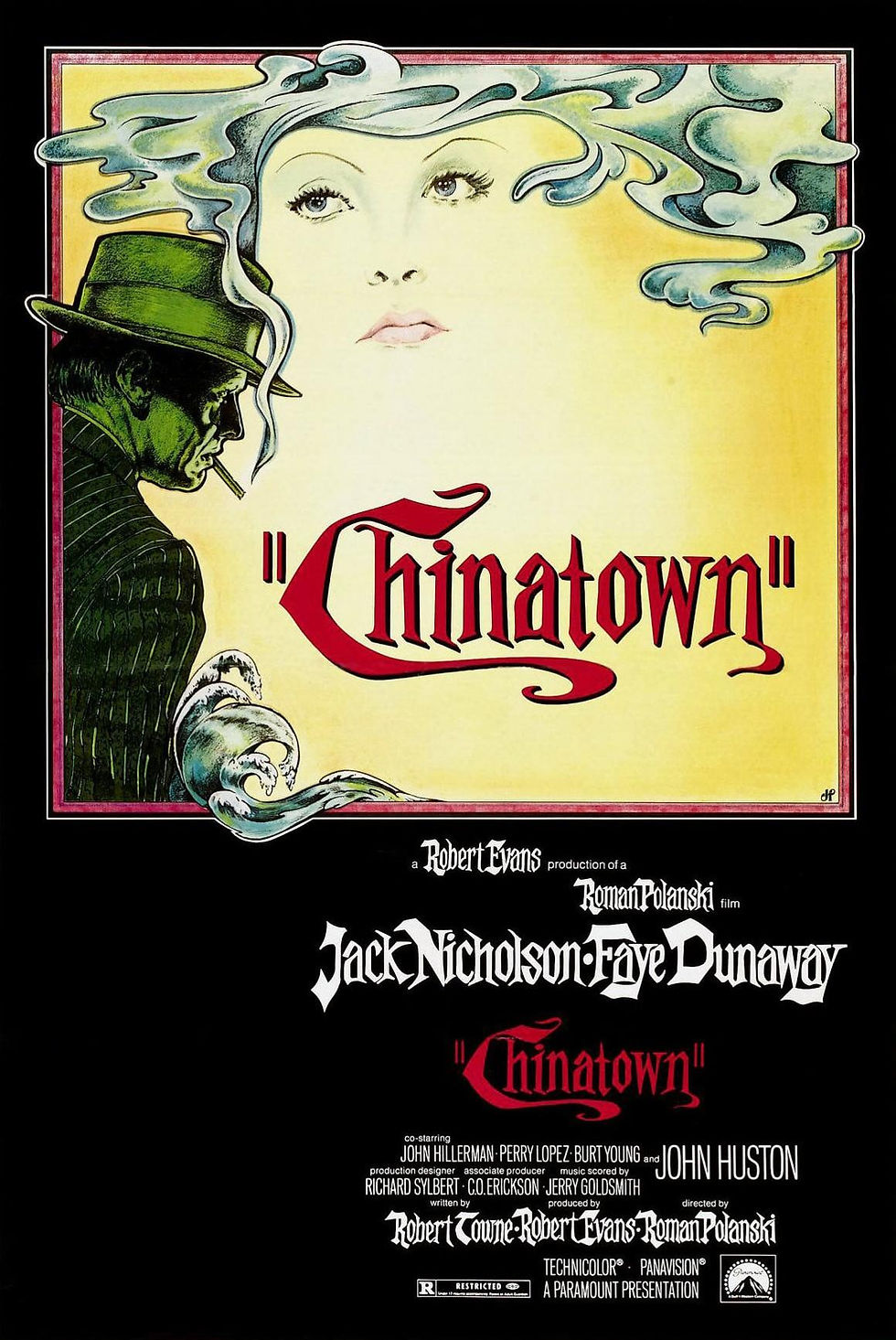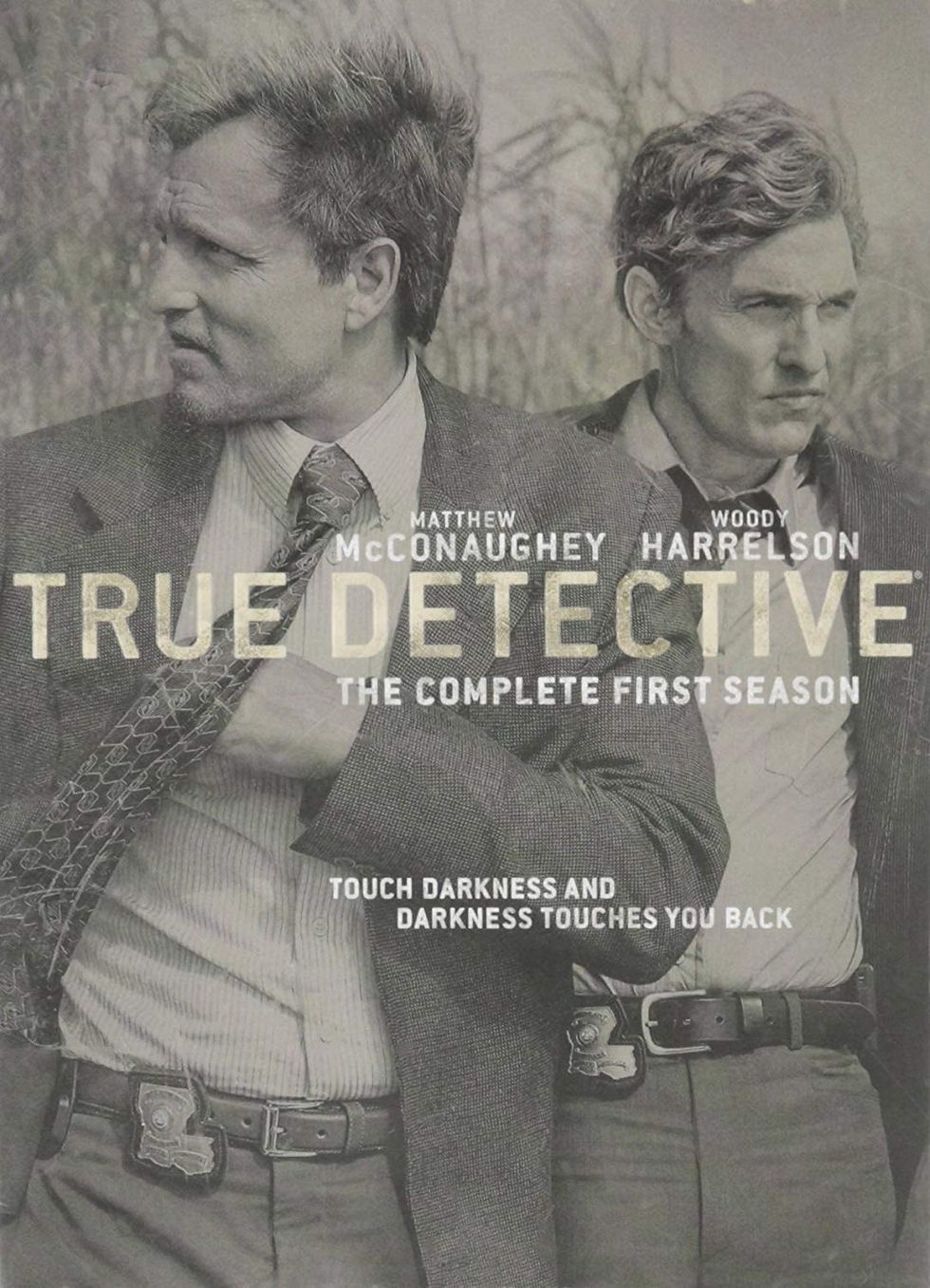Faculty Profile: Jesse Negron Goes Off
- Feb 13, 2020
- 5 min read
Jesse Negron. The man. The myth. The enigma...no longer. In this exclusive interview with APU Cinema, our beloved professor reveals his aptitude for Oscar predictions, favorite stuff to watch (and why), and insights about his career and teaching.

What's a favorite film of yours (or two) that you'd recommend as an example of excellent cinema?

I’ll pick something classic and something current. A great classic film is Chinatown. An amazing current film is Parasite. There is much written on both of these films. Chinatown is on virtually all critics' top ten films of all time lists. And Parasite appears to be the leading contender for a Best Picture Oscar [editor's note: it won!]. I want to focus on one specific note regarding both of these films that is really directed at a young filmmaker. On its surface, Chinatown is a noir detective film. There were and are still hundreds and hundreds of films made in this genre, yet most do not last like Chinatown. There are many reasons for this, but I want to focus on one broad point. Chinatown is about far more than a noir detective story. It uses this familiar genre to explore much deeper “themes” (yes, I hate that word) about politics and dark family secrets. This is a really important concept to grasp as a young storyteller. Find a “marketable” and “entertaining” story vehicle to explore your ideas. I once had a student who was very philosophical and he really struggled with how to put that in his stories. He had a huge breakthrough that horror and sci-fi horror were places he could explore these heady ideas (he didn’t even like horror films). He has a great philosophical horror project going now. Way outside the box and extremely interesting. In the fantastic film Get Out, director Jordan Peele also went this route, exploring the complexities of racism within the horror genre. I want to make the same point with Parasite. This is one of the freshest films in recent memory. It uses a familiar genre of a family comedy but turns that on its head and really explores the complex relationship between rich and poor classes. You may have a lot of scattered ideas in your head, but in the end they have to be culled down to single graphic for Netflix so they can be consumed by an audience. Always think about the “candy wrapper” for your story.

Same question, but a TV show.

Probably my favorite TV show of all time is True Detective Season One. Having grown up in the South, the show really resonated with me. One of the most interesting and humorous facets of the show is how it deals with Nihilism. One of the detective characters sees a dark, hopeless world and has a lot of interesting comments about it. I’m no Nihilist, but I think Nihilism gets a bad rap. Nihilism is probably the most honest way to look at the world. But I don’t think Nihilism is the end of the story. When you are ruthlessly honest about how bad the world is, then good things really sparkle. The worse the condition of the world, the more amazing it is when someone is just kind to someone else. The end of the story for Nihilism is a deep, overwhelming appreciation for the beauty of existence. That is really the transformation that occurs in True Detective Season One.
What sorts of classes do you usually teach, and how has your professional background prepared you for them?
Right now, I see students when they first get here in CINE 260 (our first production class) and then when they are about to leave for Capstone (last film before graduation). It’s a great place to be because the change and growth of students is so pronounced. Anyone who knows my teaching style knows that my classes are about preparation to go out into the world as professional story tellers. Everything I do comes from a professional background. I continue to work in the film business and anytime I am not at APU I am working on a script, a show bible, a development cycle or sometimes a proaction itself. I want to help students find their storytelling voices and prepare them to pitch their ideas to “Hollywood."
You've worked on some pretty big projects and with some high-profile folks. Any interesting stories you can share and wisdom you've gleaned?
When I worked with Tony and Ridley Scott, I was an Executive Producer of a CBS Television show that I created, which meant that I was at the top of the food chain. Tony Scott had a young (my age) assistant at the time. When you are a “Hollywood assistant,” you do whatever your boss asks including getting coffee and doing laundry, etc. I was always very respectful and friendly to him. I never really thought into the future enough to have any motivation except that he was a great guy and I have always had a very egalitarian attitude. Well, many years later I returned to the same company for another project, and to my surprise the young man who was Tony’s assistant was now the head of Feature Film Development. It was a great reunion. Lesson here is, you never know who is going to end up where in Hollywood.

Is there a "nugget" or "kernel" of your teaching that you're especially at pains to impart to students? Something you think is particularly essential they learn?
Let me break this into some short bits. 1. Don’t ever give up on your filmmaking dream, but make sure you leave college with a marketable skill so you don’t - ha ha - end up living in your car (just a joke). That could be learning Avid or ProTools, or maybe learning to be and Assistant Editor or Assistant Director. Two skills that are tremendously marketable today are VFX for indie films using AfterFX and creating cinematics and pre-visuals using Unreal Engine. 2. The cliché is that you will have to serve a thousand cups of coffee to make it in the film business. So get ready to “suffer” in the beginning. No matter how menial the job, always have your radar on high for opportunities. 3. I can’t stress this enough. Years ago, film school was about preparing for the real world. In the current media/content environment, you are making actual content while you are here. With platforms like Quibi and other internet streaming services, anything you create in film school could have a market. You might be developing the next big thing while you are here. Treat your projects with that much foresight and respect. 4. Be prepared to throw away your first 99 ideas. Our brains always go to clichés first and you have to push through those to start coming up with something that can breakthrough all the noise and say something unforgettable.
How do you think a student can be best equipped to succeed in the Cinematic Arts program at APU? Whether about to enter the program or already in the throes of it, what type of mindset or toolset is key to a student's thriving?
1. Work ethic - you have to be incredibly driven to succeed in the film business. Everything you work on while you are here at APU, your fellow students are taking note of your work ethic. This will inform them of who to chose as teams form for more advanced projects and this can even spill out in the professional world.
2. Stress and fun: There will be a lot of stress. And we should never lower the bar. We want to make "mini A movies” here at APU. But if you are not getting a profound joy from your journey, then something is wrong. There is a “magic” to storytelling and many times you have to step back and just enjoy that.
Anything else you'd like to add?
The most important thing to start figuring out in film school is what you want to say as a storyteller. What is your voice? What is your point of view? What do you want people to take away from your work? Keep that as the center of your journey here at APU Cinematic Arts.





Comments